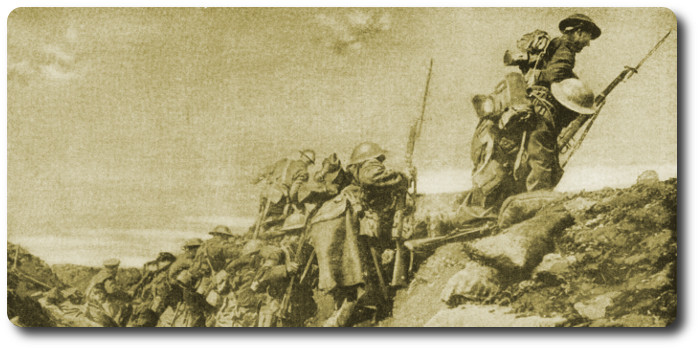Topic: CEF

Trench Raiding
Canadians From Alberta and Plains prove Adepts in New Methods of Trench Warfare
The Deseret News, 25 December 1916
(From a Staff Correspondent of the Associated Press.)
With the British armies in France, Dec. 24, via London, Dec. 25.—North of Arras certain Canadian troops have just accomplished what the British officers declare marks a new phase in modern trench warfare. In a raid, which however, was much more than a raid, they succeeded in putting out of action, temporarily at least, an entire battalion of German infantry. They took 59 prisoners, including one commissioned officer and estimated that they killed 150 Germans in dugouts which were blown to atoms after their occupants refused to surrender. The Canadian losses were extremely light. The "raid" took place at 3 o'clock in the afternoon on a front of 100 yards. The German prisoners admit that they were taken completely by surprise. The officer captured said he was convinced that something was about to happen but believed that the attack was coming on Christmas eve. He reported to the higher command but received no support.
The Canadians, mostly stalwart men from the plains of Manitoba, Saskatchewan, Alberta, had skilfully established themselves well forward so that when the artillery had ceased the preparatory fire they were in the German front line trenches in less than two minutes. The officer in command, who was reporting the raid to Brigade headquarters by telephone, said that he had hardly uttered the words, "they're off" before he had to say "they're in." Consternation reigned among the Germans who scrambled for the saps and dugouts leading to rear trenches while the Canadians pelted them with hand grenades.
Caught unprepared, many Germans in the front line offered no resistance but threw up their hands with cried of "Kamerad!" Others were taken as they fled for the second and third lines for the Canadians pushed on quickly to the second trenches.
About 20 dugouts were destroyed by Canadians, several with bombs captured from the Germans. One of the officers engaged said:
"As we entered the trenches many Germans broke for the dugouts. All who did were subsequently well cared for. Each of our men was given definite instructions for his precise task and a map of the enemy's trenches which proved correct. Each man knew every detail of the proposed operation. They were delighted at this and entered the fight with great cheers. When they came out two hours later they were singing and as happy as school boys on a holiday. The neatness despatch with which the raid was carried out were unique. The artillery co-operation of the British guns was perfection. Beautifully placed curtains of fire prepared our advance and, crossing forward, protected us as they proceeded to absolutely demolish the enemy trenches and dugouts. The program had given the men an hour and a half for their work but the cleanup was accomplished in an hour and ten minutes and the raiders signalled they were ready to return to their own trenches."
No attempt was made at a counter attack until the following night, when the Germans bombarded and raided their own front line, or what was left of it, thinking that the raiders were still there. As a matter of fact the Canadians who carried out the operations were miles away. They were not part of the fighting line but on rest, and had gone forward for this particular piece of work, which was planned weeks ago.

